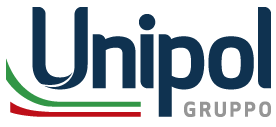Health at the centre of global challenges to achieve the UN 2030 agenda sustainable development goals
This is what emerged from the online meeting “Sharing to avoid divisions - Health is the same for everyone” organised by the Unipol Group.
A time for reflection to reaffirm the connection between Health (Goal 3) and the other 16 Goals of the UN 2030 Agenda, with special attention to Goal 10 (Inequality), Goal 1 (Healthy Diets), Goal 4 (Quality Education) and Goal 11 (Sustainable cities).
This is what emerged from the live-streamed event “Sharing to avoid divisions - Health is the same for everyone” organised by the Unipol Group and attended by Roberto Speranza, Minister of Health, Romina Boarini, Director of the OECD Centre for Well-Being, Inclusion, Sustainability and Equal Opportunity (WISE), Carlo Cimbri, Unipol Group CEO, Giuseppe Costa, Professor of Public Health at the Clinical and Biological Sciences Department of the University of Turin and Chair of the Regional ScaDU Epidemiological Service, Local Health Authority (ASL) TO3 Piedmont, and Marisa Parmigiani, Sustainability Manager for Unipol.
The opening address by Romina Boarini outlined the need to systematically and collectively intervene in various social factors at scientific and international level (education, food, living conditions, etc.) to improve healthcare conditions for everyone, not just at the access and supply stages of the service, but more especially at the prevention and exposure stages.
Giuseppe Costa expressed the issue at local level with a set of quantitative data observed over the course of long-term research. Mr Costa went into detail on the issue, focusing on the relationship between the loss of health and social causes, showing how social standing influences the condition of sick people and can even determine health outcomes.
During the event, Minister for Health Roberto Speranza said that at a stage where over 51 million vaccines have been administered in Italy, it is time to plan a new national healthcare service, focusing on territorial assistance which will have to be reinforced, and starting from homecare assistance in which four billion will be invested in the national recovery and resilience plan. In conclusion, it will be necessary to implement a substantial country pact that includes the government, the regions and the municipalities to keep healthcare in line with social aspects, and, in addition to orders, trade unions and associations, the corporate world.
The address by Unipol Group CEO Carlo Cimbri noted how public healthcare spending was no longer enough to guarantee the benefits required by a public that is more demanding now, and that is also older and requires more assistance and care. In order to avoid limiting access to healthcare services to a portion of the population only in this scenario, space will have to be given to community welfare, developing a country model aimed at integrating the state’s approach with other players like the voluntary sector and all the forces that will cooperate in the relaunch of the country.
Cimbri also examined the investments of the national recovery and resilience plan into healthcare and said that he thought they should be used to create and strengthen the infrastructures and not go towards current spending and national healthcare system costs due to the deep state of indebtedness of the country which should aim at budgetary discipline.
The Unipol Group is committed to significantly contributing to the achievement of the Sustainable Development Goals (SDGs) through the realisation of its strategies with a specific impact on SDG nos. 3, 8 and 11.
In order to achieve this, the Group defines distinctive solutions that can have a positive social impact in order to help prevent and reduce risks to customers (for example risks connected to climate change) and to fill any gaps in the protection of underinsured categories (for example due to limits in public health spending) while increasing Group profitability.
The results obtained by Unipol in this area are reported every year in the Group Integrated Report, that combines traditional financial information with a portrayal of the company’s environmental, social and governance performance. In 2020, the Group distributed stakeholder value of €13.3bn, of which €9.1bn in payments to the policyholders and €4.2bn to the other stakeholders (employees, agents, suppliers, public administration, shareholders, lenders and the community).


